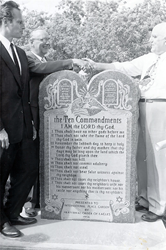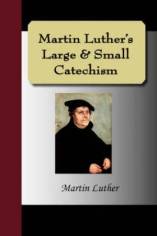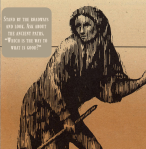
The Ten Commandments. To be obeyed, yes. But, to be used for personal prayer? For me, this introduces a new way to walk an “ancient path”. Martin Luther has this to say about reading and praying through the Ten Commandments:
“I think of each commandment as, first, instruction, which is really what it is intended to be, and consider what the Lord God demands of me so earnestly. Second, I turn it into a thanksgiving; third, a confession; and fourth, a prayer. I do so in thoughts or words such as these:
CONSIDERATION
“’I am the Lord your God, etc. You shall have no other gods before me,’ etc. Here I earnestly consider that God expects and teaches me to trust him sincerely in all things and that it is his most earnest purpose to be my God. . . .
THANKSGIVING
“Second, I give thanks for his infinite compassion by which he has come to me in such a fatherly way and, unasked, unbidden, and unmerited, has offered to be my God, to care for me, and to be my comfort, guardian, help, and strength in every time of need. We poor mortals have sought so many gods and would have to seek them still if he did not enable us to hear him openly tell us in our own language that he intends to be our God. How could we ever—in all eternity—thank him enough!
CONFESSION
“Third, I confess and acknowledge my great sin and ingratitude for having so shamefully despised such sublime teachings and such a precious gift throughout my whole life, and for having fearfully provoked his wrath by countless acts of idolatry. I repent of these and ask for his grace.
SUPPLICATION
“Fourth, I pray and say: ‘O my God and Lord, help me by thy grace to learn and understand thy commandments more fully every day and to live by them in sincere confidence. Preserve my heart so that I shall never again become forgetful and ungrateful, that I may never seek after other gods or other consolation on earth or in any creature, but cling truly and solely to thee, my only God. Amen, dear Lord God and Father. Amen'”
I will do well to get in a rhythm of praying through these Ten Commandments. Perhaps not every day, but regularly. And not in a rushed way. It can be easy to zip through the consideration / thanksgiving / confession sections, and quickly rush into my litany of things I want God to do for me. I sense that wading deeply through the first three stages with effectively change the content of stage four!
Next up: A few thoughts about the third commandment. We all quickly agree that commandments 1, 2, 4, 5, 6, 7, 8, 9 and 10 are still to be wholeheartedly obeyed today. But the third commandment? Many have dispensed with it altogether. I’m talking about Sabbath-keeping … next time. It truly is an ancient path that we should be asking for.
– E.O.


 In
In 